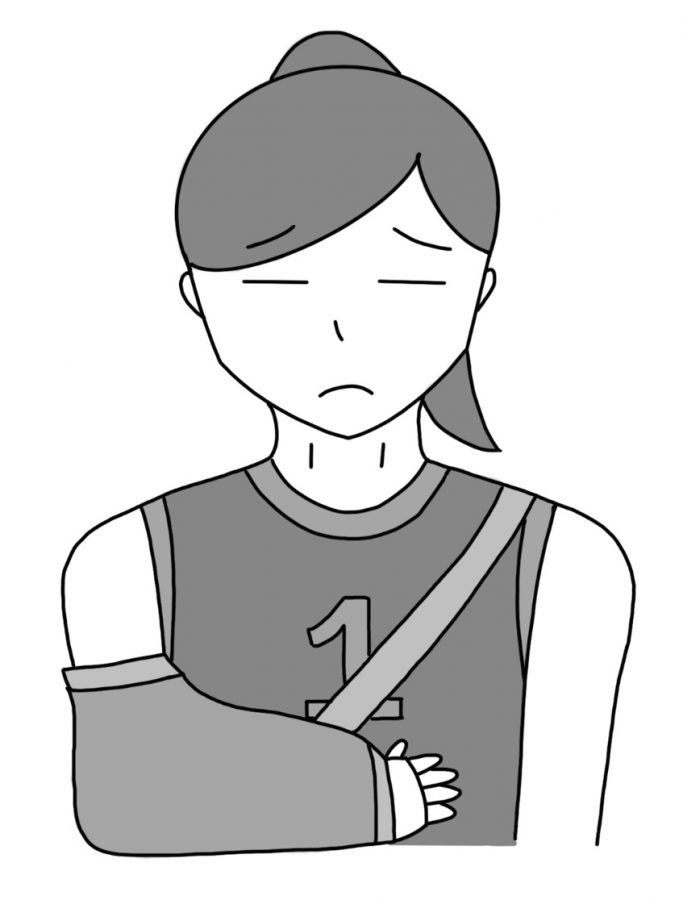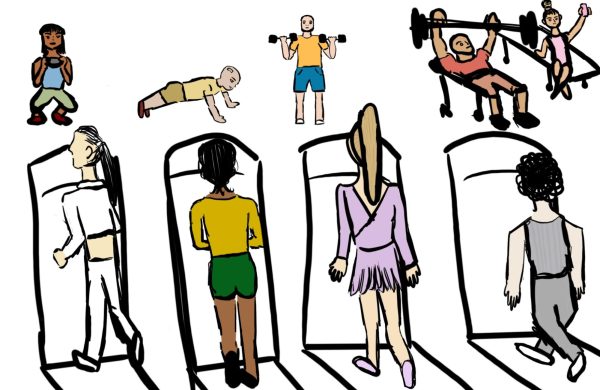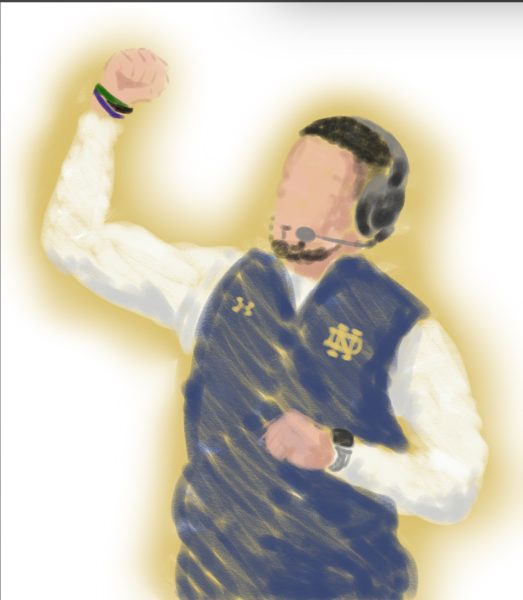Does failure lead to success?
Athletes have the desire to be the best in their game. Coaches expect perfection. Parents believe the illusion their child is a great athlete, who is free from mistakes. These understandings are wrong and are rather impractical wishes. Failure is imminent in athletics.
“In every sport, there are days where you struggle,” said junior Ryan O’Grady, who plays varsity golf.
Every athlete has experienced failure in the arena of sports.
“I was playing forward during a championship game for my soccer team,” said freshman Livia Salituro who plays basketball and soccer. “I was passed the ball in front of an open net. I took too much time, the goalie recovered and I missed the goal. My team ended up losing.”
She is not the only athlete to experience failure, but rather one of many.
“One time I failed was when my coach had me guard one of the players on the other team to prevent her from getting the ball and scoring,” said senior Amalia Sordo-Palacios who plays water polo and runs cross country. “I was frustrated because I felt like I wasn’t doing much so I tried to steal a pass but the girl got it and scored.”
People reminisce successes in sports proudly. Unfortunately, mistakes are not easily forgotten either because a failure of any kind can haunt one’s memory through adulthood. Math teacher Mr. Matthew Hynek ‘92 remembers making mistakes during his athletic career of baseball and basketball at Saint Viator.
“Freshman year, we were at Weber High School,” said Mr. Hynek. “Our starting point guard was hurt, so I had to fill in at point guard which was not a natural position for me. We were down one [point] late in the game with a chance to come down the court and take the lead and I turn the ball over. Weber goes down the court for an open layup and we lose.”
Although failure is a reality in sports, it does not make it any easier. After losses, different pictures come to mind with such as images of a head in hands, tears coming down the face and feelings of disappointment and embarrassment.
“I felt awful,” said Salituro. “Losing is tough especially when you could have done something to change it.”
After having a painful performance in sports, the athlete has to decide how to cope. Some may choose to quit after their first struggle. On the flip side, many are encouraged to work harder and improve.
“I walked away with the knowledge that I can’t change the past, and need to move forward in order to succeed,” said O’Grady. “After this, I was able to bounce back, and later that year, at the same course, I was able to perform at the level I wanted, and felt good about.”
Athletes learn to use their failure to motivate their improvement.
“I just worked harder,” said Mr. Hynek. “I realized that one play was the difference in that game. I tried to become a better ball player and ball handler and the best player I could be.”
Sports teach the participants many lessons. Hard work, sportsmanship, and responsibility are just a few. Failure in sports teaches different lessons, and many learn from their own actions.
“I learned to persevere and learn from my mistakes,” said Salituro.
Other athletes learn how to deal with their own weaknesses.
“I learned that when I focus too much on my mistakes, I prevent myself from playing better,” said Sordo-Palacios. “Rather than dwell on what I did wrong, I have to think of ways of improving and use those mistakes to become a better player.”
Some learn lessons from the actions of others.
“I learned the importance of being a good teammate,” said Mr. Hynek. “Many of my teammates came up to me after the game and put their arms around me and said it wasn’t my fault.”
A missed shot in soccer. A terrible swing in golf. An interception in football. All examples of failure to perform to the level the player wanted. Many athletes believes a failure expresses the worst of their ability. Although that may be true, failure can bring out the best in one’s character.
Failure can bring out the best in teammates, too, by understanding the team wins and loses together. Although finding a scapegoat and exploiting them through social media seems like the easy thing to do as a teammate after a loss, you should not. Failure happens to everyone, and the way you respond to a teammates failure will decide how they will respond to yours.
Your donation will support the student journalists of Saint Viator High School. Your contribution will allow us to purchase equipment and cover our annual website hosting costs.





